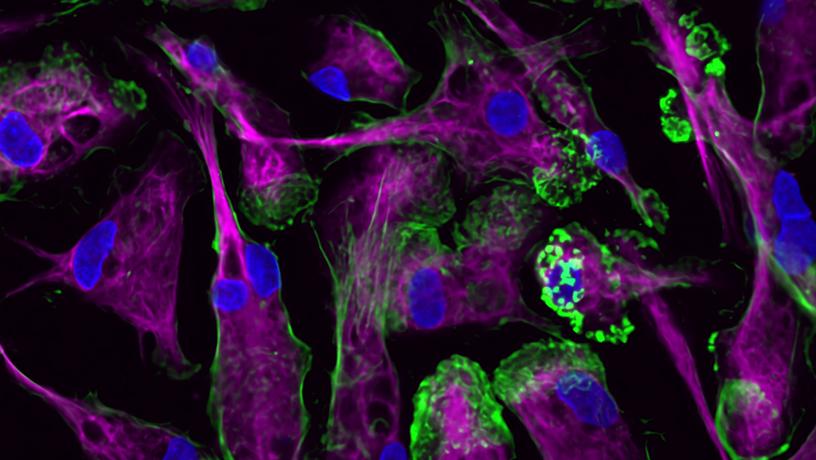Gordana Vunjak-Novakovic Granted Chan Zuckerberg Biohub New York Investigator Award to Advance Cancer Research
Vunjak-Novakovic is one of the inaugural CZ Biohub NY Investigators awarded funding to pursue ambitious research that contributes to the overarching CZ Biohub NY mission of bioengineering immune cells for the early detection and eradication of human disease.

Gordana Vunjak-Novakovic, a bioengineer renowned for her pathbreaking work in engineering functional human tissue for use in regenerative medicine, has received a Chan Zuckerberg Biohub New York (CZ Biohub NY) Investigator Award for an innovative project designed to build entirely new tools for “instructing” and characterizing immune cells. The study, which will investigate and treat immune modulation of cancer metastasis, is expected to gain new insights into the interactions of these cells with their environment.
The Investigator Program at CZ Biohub NY provides five years of funding for research by world-renowned scientists, engineers, and technologists in the New York area, from Columbia University, The Rockefeller University, and Yale University. The first cohort of Investigators was nominated for the program based on their expertise and ability to seed CZ Biohub NY’s initial work. This funding provides Investigators the freedom to pursue their most exciting, visionary ideas, many of which involve the invention of new tools and techniques to accelerate the pace of scientific discovery. CZ Biohub NY is the fourth research institute in the Chan Zuckerberg Biohub Network, which includes CZ Biohub San Francisco, CZ Biohub Chicago, and the Chan Zuckerberg Institute for Advanced Biological Imaging.
Led by Andrea Califano, a pioneer in the field of systems biology and founding chair of the Department of Systems Biology at Columbia University Irving Medical Center, the CZ Biohub NY aims to harness immune cells for the early detection and eradication of human disease by building new tools that can characterize and bioengineer immune cells—the only cells in the human body that come in contact with virtually all organs. Using single-cell biology techniques and human organs-on-chip models of diseases and informed by artificial intelligence and computational models of cell behavior, researchers at the CZ Biohub NY will engineer immune cells to sense and record signals of disease and adapt these cells to spot diseases such as lethal cancers or Alzheimer’s in their earliest stages, long before they are diagnosed.
“I expect our project to be quite disruptive,” said Vunjak-Novakovic, University Professor and the Mikati Foundation Professor of Biomedical Engineering, Medical Sciences, and Dental Medicine at Columbia. “The Investigator Program funding will help us to better understand and measure how immune cells work and, armed with this knowledge, to program new functions into these cells that could enable them to take therapeutic actions—repairing or eliminating damaged cells.”

Human iPSC-derived macrophages. Markers are: DAPI (blue), actin (green), and CD68 (magenta). Credit: Vunjak-Novakovic Lab/Columbia Engineering
Vunjak-Novakovic proposes to create a human tissue-based “organ-on-chip” with human bone marrow (BM) cells that interact with the tumor cells. Her lab will use this model to map the reciprocal interactions between the bone marrow and tumor and reveal the resulting changes in both organ systems. The group plans to establish a bone marrow model able to generate the myeloid and lymphoid subpopulations, with the ultimate goal of demonstrating the effects of immune cells on the tumor.
If successful, the proposed studies will lead to new approaches for detecting and treating cancer at early stages, while also providing the CZ Biohub Network with patient-specific engineered tissue models of interactions between the immune cells and solid tumors. The project’s substantial risks will be mitigated by using current prototypes of the engineered tissue models, methodologies for dynamic monitoring of cells, tissues, and their functions, and the knowledge acquired over a decade of Vunjak-Novakovic’s previous studies. The group will actively collaborate with other investigators within CZ Biohub NY.
